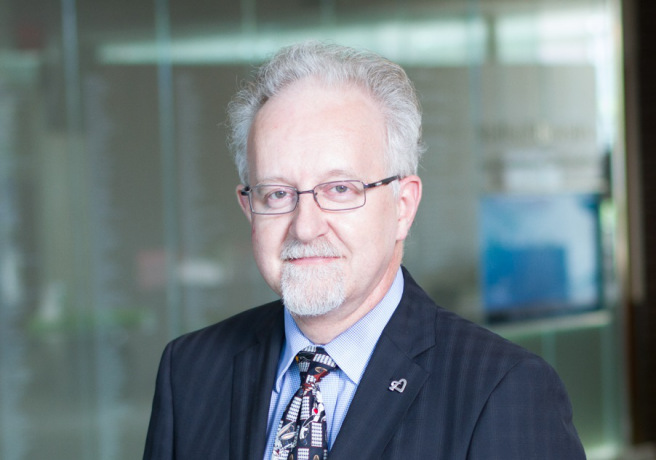
BY: KAROLINA URBAN
On October 15th, BIST is hosting a free speaker forum on Neuroplasticity and Brain Fitness, with Dr. Peter Rumney, the physician director of Brain Injury Rehabilitation Team at Holland Bloorview; Dr. Robin Green, Canada Research Chair and Senior Scientist at Toronto Rehabilitation Insitute; Paul Hyman, President and CEO of Brain Fitness International and Anthony Aquan-Assee, TBI survivor, teacher, author and motivational speaker.
Our blogger Karolina Urban spoke with Dr. Rumney about his talk.
KU: Why did you choose this topic to talk about?
Dr. Rumney: There is a lot of interest in trying to prevent, and /or avoid dementia, and why and what are the factors in being successful at this. Just like the old questions you used to have for someone who lived to be 100: what did you do to get there?
KU: What are the general thoughts about exercise and brain health?
Dr. Rumney: Research shows that some things are clearly helpful, such as regular exercise, healthy neuro-stimulation, healthy physical stimulation and being lucky enough to have good genes. The idea is to keep the brain well stimulated and well fed, meaning it has oxygen, good blood flow and nutrition. For example, when you damage the heart and vascular system by smoking, or abusing alcohol and drugs, then you have reduced blood flow. You want to make sure that you promote good circulation to the brain by keeping your heart healthy?.
KU: Are there any studies that have shown the clear link between exercise and prevention of dementia or Alzheimer’s?
Dr. Rumney: There are studies that have looked at elderly nuns in Italy. Here they saw that they seldom had issues of Alzheimer’s and one of the things they did was a lot of mental stimulation and crossword puzzles. It appears if you keep stimulating the brain to learn knew things, then it is helpful in maintaining function. However some individuals who have very taxing and cognitively demanding jobs could have quicker onset of dementia.
Some studies include a neuro-psychologist developing a comprehensive set of tasks for working memory, which have seen positive carry over to other activities that demand working memory. The nice thing is that, if you have improvement in working memory you can have improvement in attention and concentration.
KU: What about all these online gaming platforms aspiring to help maintain brain health?
A. Everybody knows Luminosity! But the question is whether these games succeed in doing what they tell you they do, such as reducing your brain age and cognitive fitness by getting faster and better at their games.
I don’t believe there is a lot of science to prove their claims, you know when you do those games you get better at those games and doesn’t mean you will be better at taxes, or conversing with your family. This “cross fit kind of idea” is to show where there is evidence or where there isn’t.
KU: You talk about increasing blood flow to the brain, are there specific exercises that can lead to that?
Dr. Rumney: From what I understand, it’s aerobic activities that are most likely to do it, [such as] running, walking, swimming and cycling. The other literature talks about what does a ‘lifestyle choice’ do in the long run. Walking is an easily done, low impact, low cost activity that is as effective as other ones, [though] you do have to walk longer.
KU: Can you tell me about regular exercise following acquired brain injury?
Dr. Rumney:We recognize that regular exercise for ABI can be very helpful. For some reason brain injury really doesn’t affect a person’s endurance over and above the deconditioning that happens following the injury. Keeping regularly active helps individuals maintain their energy and endurance, which helps naturally increase blood flow to the brain. It also helps the person sleep and good, healthy sleep is the best way for the brain to restore itself and learn new information.
We also know that individuals [who are living with a brain injury] are dealing with a lot of stress and there are positive effects of exercise and endorphins in dealing with stress.
[Brain injury survivors] also have trouble focusing attention. Burning off extra energy has a positive effect and increases their ability to focus. The question is, can we take the next step in prescribing types of therapy? For example, very old forms of therapy such as yoga and tai chi, [which are] slower, less aerobic types of activity, look at stretching, balancing and coordination and [along with] mindfulness and mediation. Helping individuals deal with pain and therapy, is actually quite safe and we are prescribing it.
Q. What’s your favorite activity or sport?
A. I like cycling, and my other interest is archery but it’s harder to do in the city. My other interests are art and carpentry. Other things are the study of music, musicians have positive overlap with right hemispheric function and learning a new language and may have positive effects.
PLEASE NOTE: TICKETS TO THE NEUROPLASTICITY AND BRAIN FITNESS SPEAKER FORUM ARE SOLD OUT – WE’LL BE GIVING AWAY ANY UN-USED TICKETS ON THE DAY OF THE EVENT ON A FIRST COME , FIRST SERVED BASIS.
Karolina Urban is a former University of Toronto and Canadian Women’s Hockey League player. Currently she is a PhD student at the Concussion Centre in Holland Bloorview Kids Rehab Hospital.
Filed under: Brain Fitness, Speaker Forum Tagged: BIST speaker forum, brain fitness, Dr. Peter Rumney, Holland Bloorview Kids Rehabiliation Hospital, neuroplasticity
![]()




